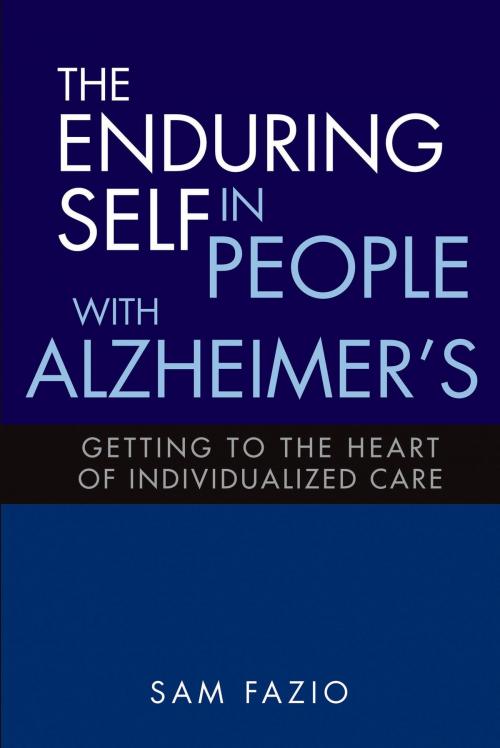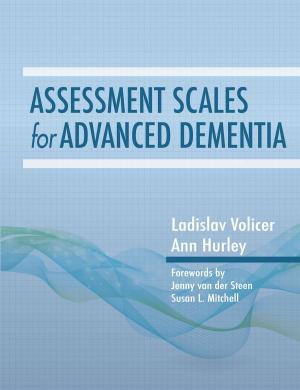The Enduring Self in People with Alzheimer's
Getting to the Heart of Individualized Care
Nonfiction, Health & Well Being, Medical, Nursing, Nursing Home Care, Ailments & Diseases, Diseases, Social & Cultural Studies, Social Science| Author: | Sam Fazio | ISBN: | 9781938870668 |
| Publisher: | Health Professions Press, Inc. | Publication: | April 14, 2016 |
| Imprint: | Health Professions Press, Inc. | Language: | English |
| Author: | Sam Fazio |
| ISBN: | 9781938870668 |
| Publisher: | Health Professions Press, Inc. |
| Publication: | April 14, 2016 |
| Imprint: | Health Professions Press, Inc. |
| Language: | English |
“. . . an outstanding contribution to a growing literature that will change the way we age in the 21st century.”
—Peter Whitehouse, M.D., Ph.D., and Danny George, M.Sc., authors of The Myth of Alzheimer’s
“This book will help move us to better and better care practices in our journeys with persons with dementia.”
—Virginia Bell, M.S.W., co-author of The Best Friends Approach to Alzheimer’s Care
Despite the frequent characterization of Alzheimer’s disease as a “loss of self,” this enlightening book demonstrates unequivocally that a person’s unique self persists through the course of the disease. The important message in The Enduring Self in People with Alzheimer’s is how much can be done in care settings to support a person’s sense of identity, and thereby enrich the lives of people experiencing the many losses associated with dementia.
Drawing from a diverse body of research in multiple disciplines, the book brings together the recommendations of the best thinkers and practitioners to illustrate the meaning of self and the importance of providing dementia care that recognizes and supports personhood. Translating research into practice, the author provides strategies for restructuring the physical and social environment to facilitate person-centered care. Administrators and staff will also learn how to reframe communication and interactions to build more meaningful relationships with people with Alzheimer’s.
Provocative discussion topics at the end of each chapter and a detailed case study can be used in staff training to encourage the changes in attitude and practice that will make care strategies more person-centered. The resource also provides an action plan for applying this individualized care philosophy at an organizational level.
Appropriate for all settings providing dementia care, The Enduring Self in People with Alzheimer’s is a vital tool for ensuring personhood is maintained and respected throughout the course of the disease.
“. . . an outstanding contribution to a growing literature that will change the way we age in the 21st century.”
—Peter Whitehouse, M.D., Ph.D., and Danny George, M.Sc., authors of The Myth of Alzheimer’s
“This book will help move us to better and better care practices in our journeys with persons with dementia.”
—Virginia Bell, M.S.W., co-author of The Best Friends Approach to Alzheimer’s Care
Despite the frequent characterization of Alzheimer’s disease as a “loss of self,” this enlightening book demonstrates unequivocally that a person’s unique self persists through the course of the disease. The important message in The Enduring Self in People with Alzheimer’s is how much can be done in care settings to support a person’s sense of identity, and thereby enrich the lives of people experiencing the many losses associated with dementia.
Drawing from a diverse body of research in multiple disciplines, the book brings together the recommendations of the best thinkers and practitioners to illustrate the meaning of self and the importance of providing dementia care that recognizes and supports personhood. Translating research into practice, the author provides strategies for restructuring the physical and social environment to facilitate person-centered care. Administrators and staff will also learn how to reframe communication and interactions to build more meaningful relationships with people with Alzheimer’s.
Provocative discussion topics at the end of each chapter and a detailed case study can be used in staff training to encourage the changes in attitude and practice that will make care strategies more person-centered. The resource also provides an action plan for applying this individualized care philosophy at an organizational level.
Appropriate for all settings providing dementia care, The Enduring Self in People with Alzheimer’s is a vital tool for ensuring personhood is maintained and respected throughout the course of the disease.















